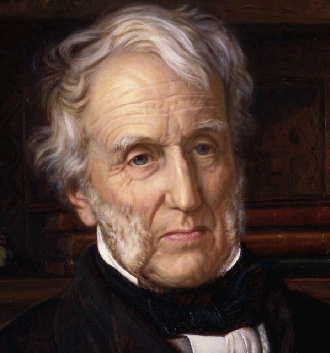- Stephen Lushington (judge)
Infobox Person
name = Stephen Lushington

image_size = 240px
caption = 1862 portrait (detail) byWilliam Holman Hunt
birth_name =
birth_date =14 January 1782
birth_place =South Hill Park ,Berkshire
death_date =19 January 1873
death_place = Ockham Park,Surrey
death_cause =
resting_place = Ockham,Surrey
resting_place_coordinates =
residence =
nationality =English
other_names =
known_for = Slavery abolitionist
education =Christ Church, Oxford ,Inner Temple
employer =
occupation = judge
title =
term =
predecessor =
successor =
party =
boards =
spouse =
children =
parents =
relatives =
religion =
website =
footnotes =Stephen Lushington (
14 January 1782 -19 January 1873 ) was a Doctor of Civil Law, a judge, aMember of Parliament and a radical for the abolition of slavery and capital punishment.Lushington was the second son of
Sir Stephen Lushington, 1st Baronet (1744-1807), a Member of Parliament and Chairman of theBritish East India Company . He was educated atEton College andChrist Church, Oxford , after which he was elected a fellow of All Souls. He joined theInner Temple and was called to the bar in 1806. In the same year, he entered Parliament as Whig member for Great Yarmouth, and he spoke in the Commons in favour of the bill to abolish the slave trade in February 1807, and remained a lifelong advocate of the anti-slavery cause. He was re-elected in 1808, but a few months later, after the defeat of a motion he had proposed to castigate the behaviour of Sir Home Popham, he resigned his seat and devoted his energies to his legal practice.He returned to Parliament as the MP for Ilchester in 1820, and subsequently also represented Tregony, Winchelsea and Tower Hamlets. He continued to support all measures attempting to suppress slavery or the slave trade, and also proposed or attempted to propose motions to recognise the independence of South America from Spain (1820) and to abolish
capital punishment (1840). He supportedCatholic Emancipation and spoke in favour of repealing the civil disabilities which applied to Jews; he was also a strong supporter of Parliamentary reform, and advocated triennial parliaments and the secret ballot. He retired from Parliament in 1841.His legal career continued parallel to his political one. In 1820 he was one of the counsel retained by Queen Caroline, and spoke in her defence during her trial before the House of Lords. In 1828 he was appointed judge of the
Consistory Court of London. In 1838 he was made a Privy Counsellor and became judge of the High Court of Admiralty, in which post he continued until 1867. He was alsoDean of Arches from 1858 to 1867, when he retired from all his posts due to ill health.Cricket career
Lushington was also an amateur
cricket er who made 3 known appearances inmajor cricket matches in 1799. He was mainly associated with SurreyArthur Haygarth , "Scores & Biographies", Volume 1 (1744-1826), Lillywhite, 1862] .References
Further reading
* "Dictionary of National Biography"
* "Law, Politics and the Church of England: The Career of Stephen Lushington 1782-1873" (Cambridge Studies in English Legal History) (Hardcover) by S. M. Waddams
*External links
* [http://www.npg.org.uk/live/search/portrait.asp?LinkID=mp00069&rNo=0&role=sit# National Portrait Gallery]
* [http://www.cricketarchive.com/Archive/Players/79/79369/79369.html CricketArchive record]
Wikimedia Foundation. 2010.
